Israel’s Relationship With The Gulf Cooperation Council
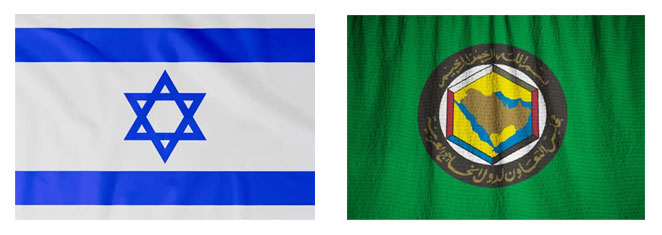
By Michael Barantschik
The current problems surrounding Israel and Palestine have shaken the Middle East and impacted global trade and security. Just as an integration of Israel into the wider region had appeared promising, serious and violent obstacles have arisen. In this article we examine Israel’s relationship with the Gulf Cooperation Council (GCC) – six countries whose interests all align in one way or another with Israel – and Palestine.
Israel – A brief background
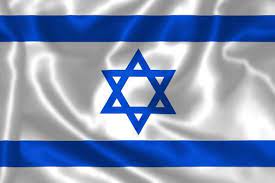
The history of Israel is a complex and multifaceted narrative marked by significant events and conflicts that have had a lasting impact on the nation’s identity and the broader Middle East. A moment of great significance in the history of Israel occurred in 1917 with the Balfour Declaration, in which the British government pledged its support for a “national home for the Jewish people” in Palestine. This marked the first official recognition of Jewish national aspirations in the region. Subsequently, the British Mandate for Palestine, which followed World War I, facilitated the influx of Jewish immigrants, fostering the growth of Jewish settlements and communities in the region.
In the aftermath of World War II and the horrifying atrocities of the Holocaust, the compelling necessity for a Jewish homeland became undeniably evident. 1947 witnessed a significant development when the United Nations endorsed a partition plan. This plan proposed the establishment of independent Arab and Jewish States and a special international regime for the city of Jerusalem, ultimately laying the groundwork for the birth of the State of Israel in 1948. However, this decision sowed seeds of discord in the region, as the Arab Higher Committee, the Arab League, and other Arab leaders vehemently rejected it, citing its perceived injustice toward the Arab population in the area. Israel’s declaration of independence simultaneously ignited the War of Independence, commencing a prolonged and tumultuous era of conflicts between Israel and its neighboring Arab states.
Between its establishment and the present day, the region has been marked by numerous wars and conflicts. These include significant military confrontations such as the Suez Crisis of 1956, the Six-Day War in 1967, the Yom Kippur War in 1973, and more recent events like the first and second intifada in 1987 and 2000, respectively. Many of these wars carried profound geographical implications. The Six-Day War, in particular, witnessed Israel gaining control of the West Bank, Gaza Strip, Golan Heights, and the Sinai Peninsula. The Sinai Peninsula was returned to Egypt in 1982 as part of the peace treaty finalized between the two nations in 1979.
The ongoing Israeli-Palestinian conflict stands out as one of the world’s longest-running disputes. Despite numerous diplomatic efforts aimed at creating a secure and cooperative coexistence for both nations in the region, including promising agreements such as the Oslo Accords, and the more recent Abraham Accords, the conflict has endured. The events of October 7, marked by the horrifying Hamas attacks and their aftermath, serve as a sobering reminder of the persistent intricacies and fragility of the situation, emphasizing the ongoing need for continuous international scrutiny and engagement.
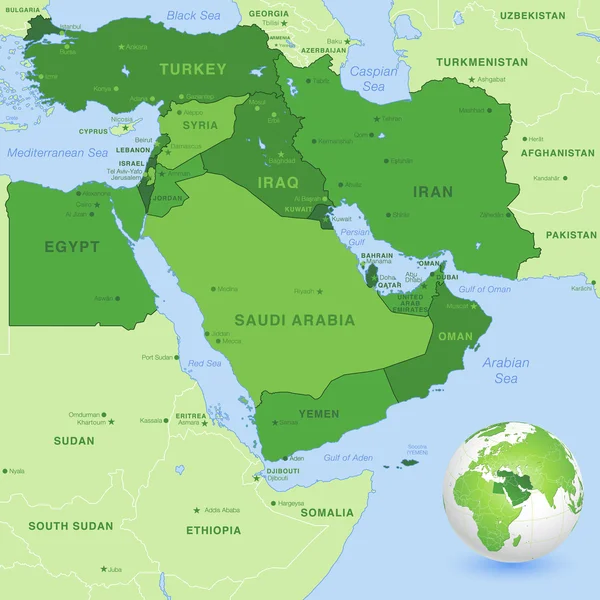
The Gulf Cooperation Council (GCC)
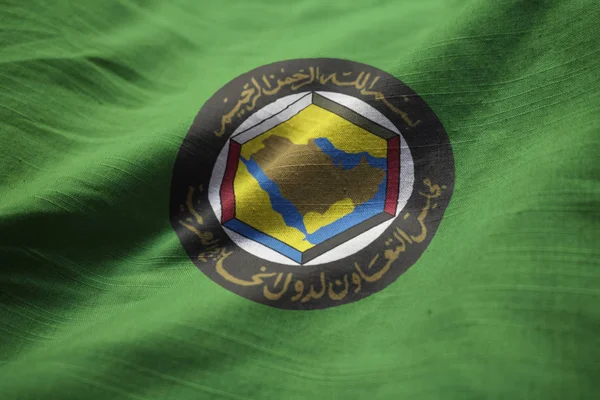
The Gulf Cooperation Council (GCC), established in Riyadh, Saudi Arabia, in May 1981, is a regional political and economic alliance comprising six Middle Eastern nations: Bahrain, Kuwait, Oman, Qatar, Saudi Arabia, and the United Arab Emirates. The GCC’s fundamental goal is to foster unity and security among its member states, driven by their shared objectives and a common foundation of political and cultural identities deeply rooted in Arab and Islamic principles. Significantly, these GCC countries collectively possess over a third of the world’s confirmed oil reserves, highlighting their substantial influence and prominence as key players in global economics.
The GCC was established during a time of great military tensions and security challenges in the Gulf region. Egypt’s peace treaty with Israel in 1979 and the Iranian revolution, which led to the Iraq-Iran war, created a sense of unease among the Gulf states. They recognized the imperative need for a forum to facilitate mutual consultation, enabling them to deliberate on their collective interests and formulate strategies to address the regional security void. The GCC addressed the concept of collective security by creating the Peninsula Shield Force in 1984, which formed the nucleus of a GCC military force.
One year prior to that, they established the GCC Free Trade Area, effectively exempting the GCC member states’ industrial, agricultural, and natural resources from customs duties. Subsequently, in 2002, this pivotal development was succeeded by the formation of the GCC Customs Union, which, in turn, paved the way for the establishment of the Gulf Common Market in 2008. The ongoing expansion of trade opportunities and markets within the Gulf region has generated heightened competition and sustained economic growth, yielding benefits for corporate entities and consumers.
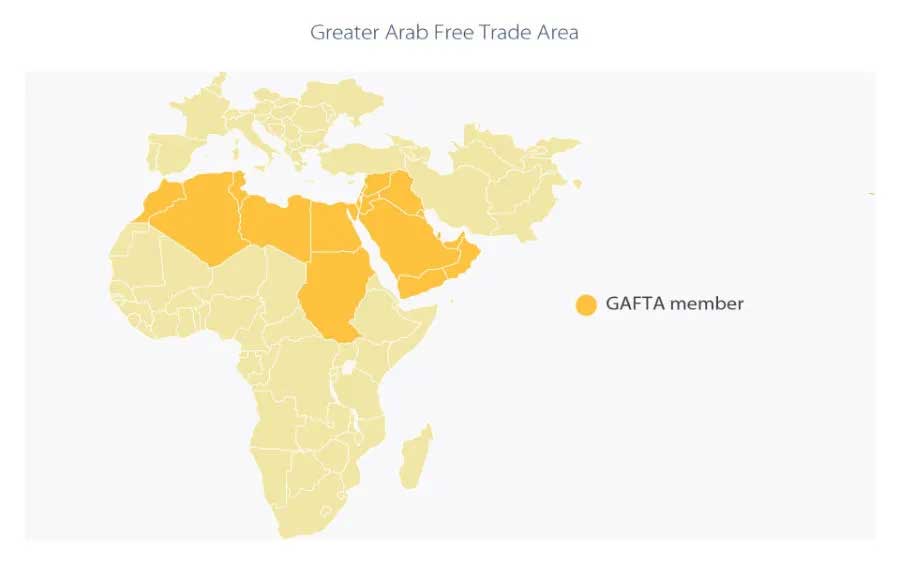
The GCC member states aspire to establish a unified monetary union, with the goal of enhancing their global integration, broadening their economic horizons, and increasing their influence on the international stage. These discussions have been ongoing since 2001 and represent a fundamental and recurring topic on the agenda of nearly every inter-member meeting, underscoring its significance within the GCC’s primary objectives.
In terms of performance, the World Bank has stated that the GCC countries’ total GDP was projected to be close to US$ 2 trillion in 2022. If the GCC continued business as usual, their combined GDP would grow to an expected US$6 trillion by 2050. However, if the GCC countries implemented a green growth strategy that would help and accelerate their economic diversification, GDP could have the potential to grow to over US$13 trillion by 2050. The collective opinion is currently that this should continue rather than be derailed by a damaging regional conflict.
Developments and Hurdles in GCC-Israel Relations
In 1996, Qatar and Oman made history as the first Gulf nations to initiate trade relations with Israel, establishing trade offices in their respective capitals. Although they reached a practical working agreement, formal discussions on the subject were avoided due to the broader Arab sentiment toward Israel.
Up until 2009, Qatar and Israel maintained diplomatic and financial ties. However, due to Operation Cast Lead, Qatar halted its connections with Israel, resulting in a severing of diplomatic relations. Qatar had actively taken on a mediating role in fostering dialogue between Israel and Hamas, especially in Gaza, while also providing financial support. In this context, Jerusalem collaborated with Doha to facilitate the distribution of Qatari aid in the Gaza Strip, although specific details regarding these interactions are seldom disclosed to the public.
Oman officially refrains from recognizing Israel as a state and has made it clear that it won’t formalize relations with Israel until a sovereign Palestinian state is recognised. Nevertheless, there are informal connections between the two countries behind the scenes. Officials from both sides have engaged in numerous meetings over the years, and Oman’s decision to allow Israeli aircraft to use its airspace from the beginning of 2023 was a notable development.
In the 21st century, the Gulf states have demonstrated an increased interest in Israel, driven by two key factors: the remarkable economic progress of the Gulf states with aspirations of expanding their global influence, and Iran, a historical rival of the Gulf states, particularly Saudi Arabia.
In 2002, the Arab League supported a Saudi initiative known as the Arab Peace Initiative. This proposal called upon the Gulf States members to establish normal relations with Israel in exchange for the creation of an independent Palestinian state. Regrettably, the growing number of conflicts in the West Bank and the Gaza Strip made it harder to create a workable state in the area and caused the negotiations between Israel and the Palestinian authorities to break down.
The Abraham Accords

On September 15, 2020, Israel entered a historic agreement with the United Arab Emirates and Bahrain, collectively known as the Abraham Accords. Two other Arab nations, namely Morocco and Sudan, also signed agreements as part of the Abraham Accords later that year. Israel’s establishment of official ties with these Arab nations represented a departure from the customary regional dynamics, introducing new prospects for collaboration.
Israel-Saudi Arabia Negotiations
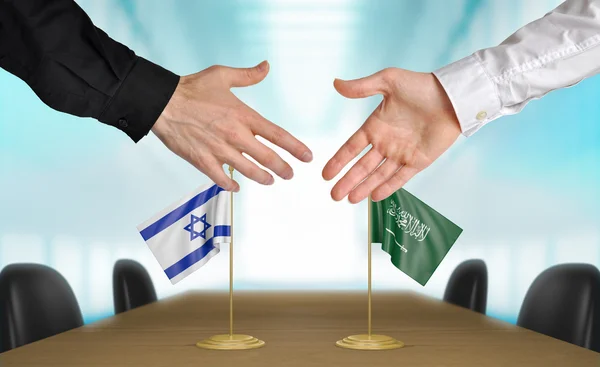
Among the Gulf Nations, Saudi Arabia has been prominently featured in discussions regarding its relationship with Israel. Recent months have seen considerable attention focused on a potential agreement between Israel and Saudi Arabia, mediated by the United States. While the exact terms of this deal were still being negotiated, it entailed Saudi Arabia officially recognizing the state of Israel in exchange for substantial security assurances from the US and assistance in constructing a civilian nuclear power facility. Such an agreement between Saudi Arabia and Israel would have profoundly impacted the region.
Saudi Arabia, being the largest Gulf Arab state and arguably the most influential nation in the area, thanks to its considerable financial resources and its status as the custodian of Islam’s holiest mosque, holds a unique position. Riyadh’s formal recognition of Israel would have marked a significant milestone in Arab-Israeli relations. However, the unexpected terrorist attacks by Hamas’s militants on Israeli civilians and the subsequent conflict it has prompted have seemingly derailed the prospects of this agreement, at least for the foreseeable future. Some analysts speculate that these attacks, orchestrated by Hamas and supported by Iran, were designed to disrupt the ongoing negotiations.
Kuwait
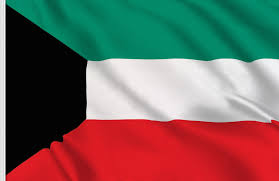
Kuwait stands out within the GCC due to its unwavering stance against normalizing relations with Israel. This firm position is rooted in Kuwait’s persistent commitment to the Palestinian cause and its opposition to Israeli military occupation. Despite pressure from fellow GCC members, Kuwait remains dedicated to this principle, enforcing restrictions on Israeli products and individuals with Israeli passports.
UAE
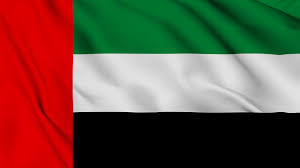
The most noteworthy development has been in the Israel-UAE trade relationship. Israeli exports to the UAE surged from US$58.8 million in 2020 to US$384 million in 2021, while imports climbed from US$120 million to US$837 million during the same period. This trade relationship witnessed more than a doubling in 2022 after the signing of a free trade agreement between the two nations aimed at reducing tariffs on a wide range of traded goods. In 2022, trade in goods (excluding software) between Israel and the UAE reached a record high, totaling US$2.56 billion, compared to US$1.22 billion in 2021.
Diamonds constitute a significant portion of both exports and imports, given the status of these nations as key diamond trade centers in the Middle East. Diamonds account for approximately 70% of Israel’s total exports and 35% of imports. Additionally, various machine components and technological equipment represent major export items from Israel to the UAE. Alongside diamonds, Israel also imports a substantial volume of broadcasting equipment.
The UAE also recognizes investment opportunities in the Israeli market. In pursuit of this, they established a joint investment fund with a total of US$12 billion in assets, intended for investments in key sectors of the Israeli economy, encompassing agriculture, energy, and healthcare. The two nations have also set up a joint Israeli-Emirati R&D fund, valued at approximately US$90 million, to encourage collaboration in technological innovation.
The UAE’s sovereign wealth fund, Mubadala Investment, has allocated close to US$100 million for investments in Israeli capital firms. In 2021, Mubadala Petroleum, a subsidiary of Mubadala Investment Co., successfully acquired a 22% ownership stake in the Tamar gas field, previously held by Delek Drilling. The Tamar gas field is situated within the Israeli exclusive economic zone (EEZ) in the Mediterranean Sea. With an estimated worth of around US$1 billion, this deal stands as the most substantial commercial agreement signed between Israeli and Emirati entities since the commencement of the Abraham Accords between the UAE and Israel.
Another project made feasible due to the Abraham Accords was the November 2021 agreement involving Israel, the UAE, and Jordan. This agreement pertains to the construction of a solar plant within Jordan. Israel is set to procure the plant’s green energy while, in return, it will provide Jordan with desalinated water.
Bahrain
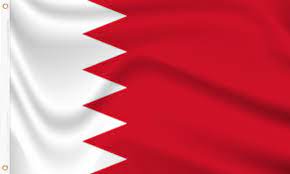
Trade relations with Bahrain have been gradually evolving, although their full potential remains untapped. In 2020, prior to the signing of the peace treaty, Israeli exports to Bahrain were valued at just US$72,000, with imports at US$16,000. In 2021, Israeli exports to Bahrain reached US$3.7 million, with imports totaling US$2.8 million.
Notably, the free trade agreement between Israel and Bahrain, which was finalized a year ago and expected to stimulate trade between the two countries, has yet to be ratified by their respective leaders.
Despite its modest size and economic influence, Bahrain’s significance lies in its strategic location, cooperation with the United States (hosting the Command HQ of the Fifth Fleet), and close ties to Saudi Arabia. Consequently, the agreement between Israel and Bahrain holds broader implications beyond bilateral cooperation, serving as a test case for Saudi Arabia, which has been evaluating the potential advantages and disadvantages of forging ties with Israel.
Saudi Arabia
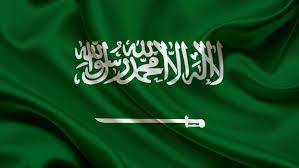
Despite not being among the formal signatories of the Abraham Accords, the country has supported the accords from behind the scenes. Officially, Saudi Arabia maintains no diplomatic or trade relations with Israel, resulting in minimal recorded trade figures between the two nations.
Qatar
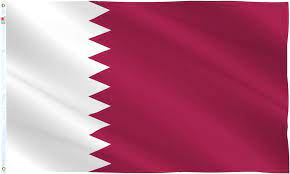
In 2010, Qatar extended two offers to re-establish trade relations with Israel. These offers were contingent upon Israel allowing Qatar to send building materials and financial aid to Gaza for the purpose of rehabilitating the infrastructure. Additionally, Israel was requested to issue a public statement expressing appreciation for Qatar’s role and recognizing its status in the Middle East. Israel declined these offers, citing concerns that Hamas might use the materials and aid from Qatar to construct fortifications and bunkers for launching rocket attacks on Israeli cities and towns.
In December 2018, Israel approved a €13 million payment from Qatar aimed at assisting Gazan workers as part of a biannual payment designed to address the humanitarian crisis in the Gaza region. Moreover, in November 2021, Israel and Qatar entered into an agreement that permitted Qatar to engage in the diamond trade while allowing Israeli merchants to establish offices in Qatar.
Kuwait and Oman
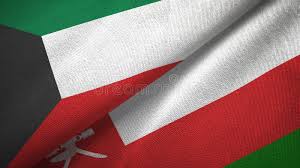
Formal trade ties between Oman and Israel came to a halt in the wake of the Second Intifada outbreak in October 2000. Kuwait has abstained from establishing any form of connection with Israel.
From Confrontation to Cooperation
The future for Gulf countries and Israel is a dynamic landscape with opportunities for economic collaboration, strengthened security partnerships, diplomatic alliances, and increased people-to-people exchanges. The formalization of relations through the Abraham Accords has set the stage for greater regional stability and the potential expansion of these ties to more nations in the Middle East. However, as the conflict between Israel and Hamas continues to escalate, the likelihood of significant progress in the near months and possibly years appears to diminish. The unfolding of time will be the ultimate judge of whether the ongoing conflict can find resolution, the dissipation of mutual animosity can be realized, and the cultivation of amicable relations can take root, leading to mutual security advantages and the promotion of economic prosperity in the area. The recognition of Palestine appears to be the key aspect to eventually binding these relationships together.
Related Reading
- Israel’s Hamas & Hezbollah Conflict Threatens China and Russia’s Middle East Intentions
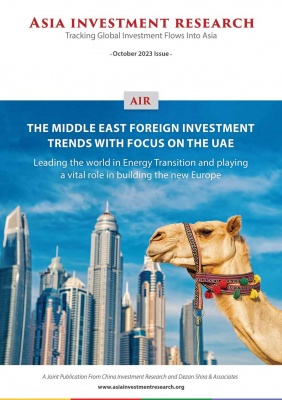 The Middle East Foreign Investment Trends with Focus on the UAE
The Middle East Foreign Investment Trends with Focus on the UAE
About Us
Middle East Briefing is one of five regional publications under the Asia Briefing brand. It is supported by Dezan Shira & Associates, a pan-Asia, multi-disciplinary professional services firm that assists foreign investors throughout Asia, including through offices in Dubai (UAE), China, India, Vietnam, Singapore, Indonesia, Italy, Germany, and USA. We also have partner firms in Malaysia, Bangladesh, the Philippines, Thailand, and Australia.
For support with establishing a business in the Middle East, or for assistance in analyzing and entering markets elsewhere in Asia, please contact us at dubai@dezshira.com or visit us at www.dezshira.com. To subscribe for content products from the Middle East Briefing, please click here.


